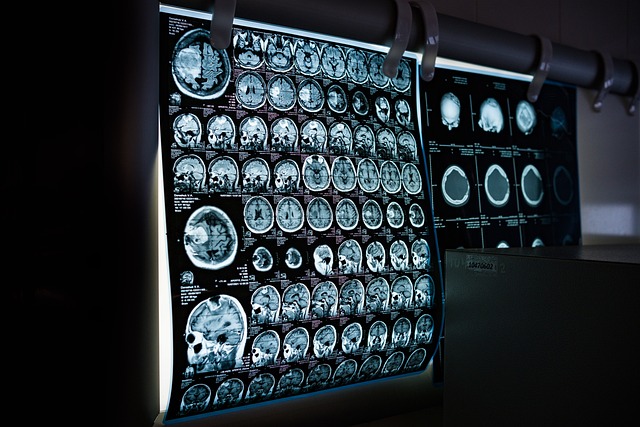Your Guide to the World’s Leading Cancer Hospitals
Cancer treatment has advanced significantly in recent years, with specialized hospitals around the globe offering cutting-edge therapies, multidisciplinary care teams, and comprehensive support services. Understanding what distinguishes these institutions can help patients and families make informed decisions about where to seek treatment. This guide explores key factors to consider when evaluating cancer hospitals worldwide.

When facing a cancer diagnosis, choosing the right hospital can significantly impact treatment outcomes and quality of care. Specialized cancer centers invest heavily in research, technology, and expertise, creating environments where patients receive the most current and effective treatments available. These institutions often participate in clinical trials, offer access to novel therapies, and provide comprehensive support services that address the physical, emotional, and practical challenges of cancer treatment.
What Defines Cancer Hospitals in 2025
Modern cancer hospitals distinguish themselves through several key characteristics. Accreditation by recognized organizations ensures adherence to rigorous quality standards. Many leading institutions hold designations from bodies such as the Commission on Cancer or equivalent international accrediting agencies. These hospitals typically feature multidisciplinary tumor boards where specialists from various fields collaborate on treatment plans, ensuring patients benefit from diverse expertise. Advanced diagnostic technology, including molecular profiling and precision imaging, allows for more accurate diagnoses and personalized treatment approaches. Additionally, robust research programs and participation in clinical trials provide patients access to innovative therapies not yet widely available.
Comparing Cancer Hospitals Around the World
Cancer hospitals vary significantly in their specializations, treatment philosophies, and available resources. Some institutions excel in specific cancer types, such as hematologic malignancies or solid tumors, while others offer comprehensive care across all cancer categories. Geographic location influences access to certain treatments, participation in regional clinical trial networks, and availability of support services. Cultural factors also play a role, as hospitals in different countries may approach patient care, communication, and end-of-life decisions differently. When comparing options, patients should consider factors such as survival rates for their specific cancer type, availability of second opinion programs, language services, and accommodations for international patients.
Key Features of World-Class Cancer Treatment Centers
Several characteristics consistently appear among highly regarded cancer hospitals. Comprehensive care models integrate medical oncology, radiation therapy, surgical oncology, and supportive care services under one roof. Genetic counseling and testing services help identify hereditary cancer risks and guide treatment decisions. Survivorship programs address long-term health needs after treatment completion. Palliative care teams work alongside treatment teams to manage symptoms and improve quality of life throughout the cancer journey. Many institutions also offer integrative medicine services, including nutrition counseling, pain management, and psychological support, recognizing that cancer treatment extends beyond medical interventions alone.
Navigating Treatment Options and Specializations
Different cancer types require specialized expertise and equipment. Centers of excellence for specific cancers often achieve better outcomes due to concentrated experience and refined protocols. For example, institutions specializing in pediatric oncology maintain child-friendly environments and age-appropriate treatment approaches. Similarly, hospitals with dedicated brain tumor centers possess specialized neurosurgical capabilities and radiation techniques. When evaluating hospitals, patients should investigate the institution’s experience with their specific cancer type, including case volumes, published research, and participation in disease-specific registries. Access to emerging treatments such as immunotherapy, targeted therapy, and CAR T-cell therapy varies by institution and should factor into decision-making.
Understanding Treatment Costs and Financial Considerations
Cancer treatment costs vary dramatically depending on location, treatment type, and insurance coverage. In the United States, comprehensive cancer care can range from tens of thousands to several hundred thousand dollars, with complex treatments like bone marrow transplants potentially exceeding $500,000. International patients seeking treatment abroad should factor in travel, accommodation, and extended stay costs. Some countries offer significantly lower treatment costs while maintaining high quality standards, making medical tourism an option for some patients. Insurance coverage, including international health insurance policies, significantly impacts out-of-pocket expenses. Many hospitals offer financial counseling services to help patients understand costs and explore assistance programs.
| Hospital Type | Geographic Region | Estimated Treatment Cost Range | Key Considerations |
|---|---|---|---|
| Comprehensive Cancer Center | United States | $50,000 - $500,000+ | Advanced technology, clinical trials, high costs |
| National Cancer Institute | Europe | $30,000 - $300,000 | Universal healthcare systems, lower costs |
| Specialized Cancer Hospital | Asia | $20,000 - $200,000 | Growing expertise, cost-effective options |
| Academic Medical Center | Australia | $40,000 - $400,000 | Research focus, comprehensive services |
Prices, rates, or cost estimates mentioned in this article are based on the latest available information but may change over time. Independent research is advised before making financial decisions.
Making an Informed Hospital Selection
Choosing a cancer hospital requires careful consideration of multiple factors beyond reputation alone. Distance from home affects family involvement and logistical challenges during extended treatment periods. Second opinion services allow patients to confirm diagnoses and explore alternative treatment approaches. Communication style and cultural compatibility influence patient satisfaction and treatment adherence. Practical considerations such as language services, accommodation assistance, and care coordination for international patients matter significantly. Patients should request information about hospital infection rates, patient satisfaction scores, and outcomes data specific to their cancer type. Consulting with local oncologists, patient advocacy groups, and former patients can provide valuable insights beyond marketing materials.
This article is for informational purposes only and should not be considered medical advice. Please consult a qualified healthcare professional for personalized guidance and treatment.




